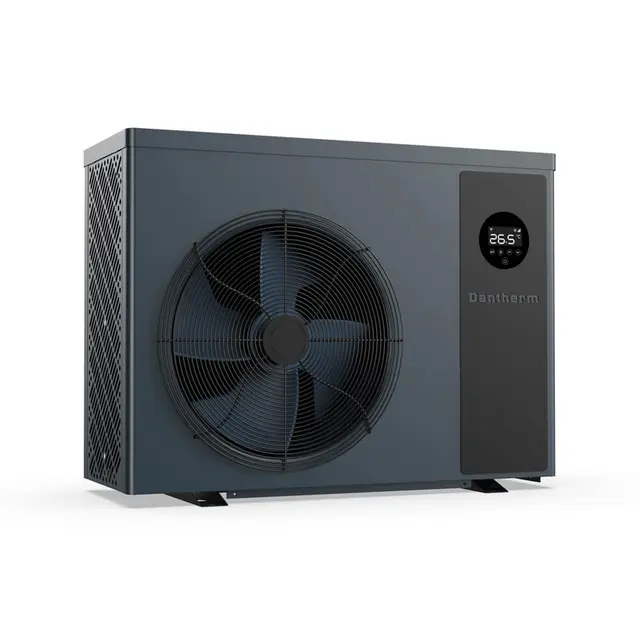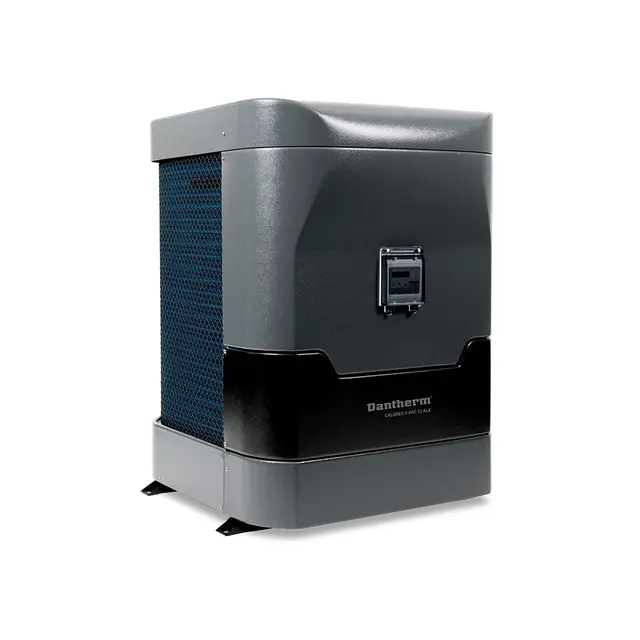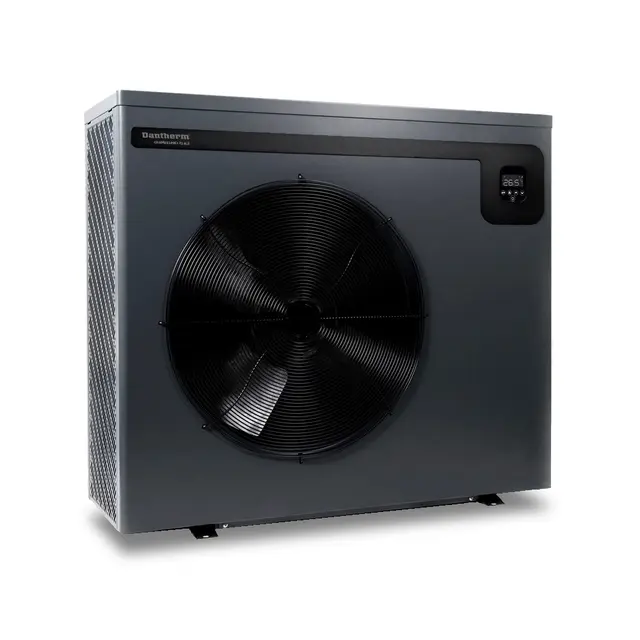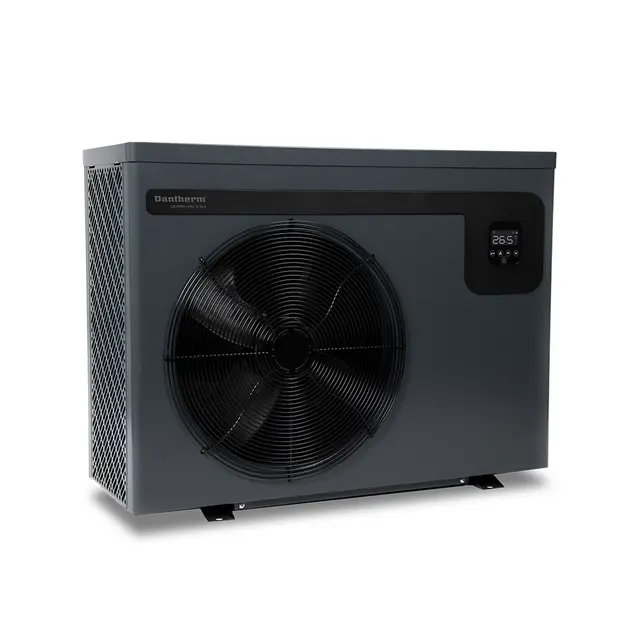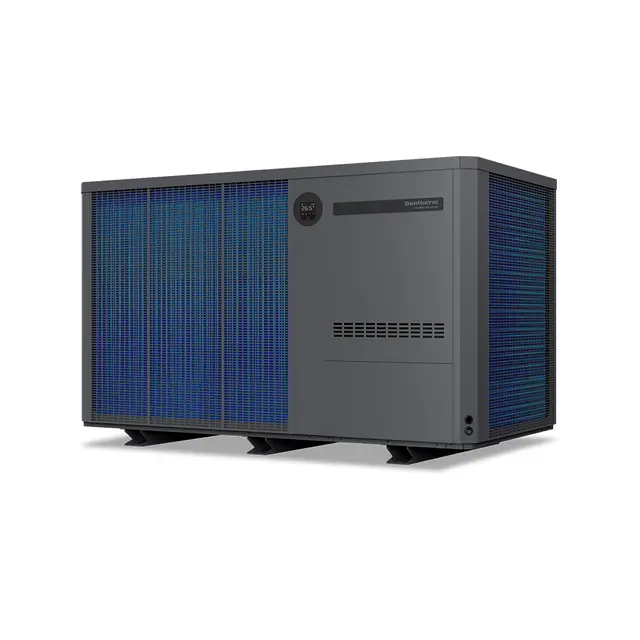How much does it cost to heat a swimming pool?
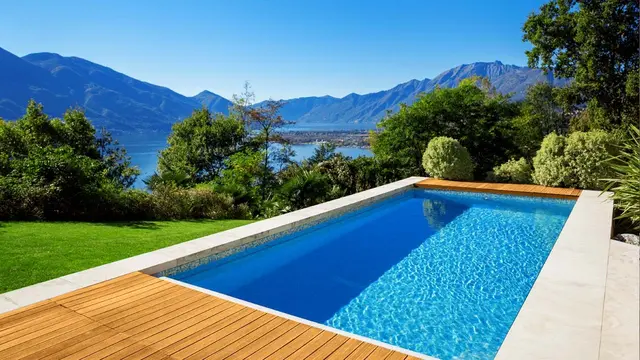
- Home
- Insights
- Heating insights
- How much does it cost to heat a swimming pool?
Heating a pool indoors or outdoors can be an energy-intensive process. To keep running costs down, we discuss what factors influence energy usage and how you can choose the optimal heating solution for your facility.
At one point or another, we all fantasise about bobbing in a perfectly warm pool at the height of summer; blue skies abound and the sun beaming down.
A private pool is a great way to get a taste of this inviting atmosphere. However, without the right swimming pool climate control solution in place, the energy needed to create this warm, welcoming pool can send costs skyrocketing.
To understand the costs associated with heating your swimming pool, it is crucial to gauge the power required, as energy usage is a considerable expense for private owners.
How to calculate the power needed to heat your pool
While there is no hard and fast calculation to estimate the precise energy required to heat your swimming pool, it is important to consider the following questions.
Is your pool indoor or outdoor?
If your facility is enclosed in a building, partially sheltered from the elements or entirely open-air, this will influence the rate at which the water, and the subsequent heat, is evaporated.
This is one of the largest factors that will influence the power required to heat your pool, as our own research suggests that 80% to 90% of heat energy is used just to replenish the warmth lost from evaporation.
Furthermore, wind exposure and wind speed is also highly influential on the heat loss of an outdoor pool.
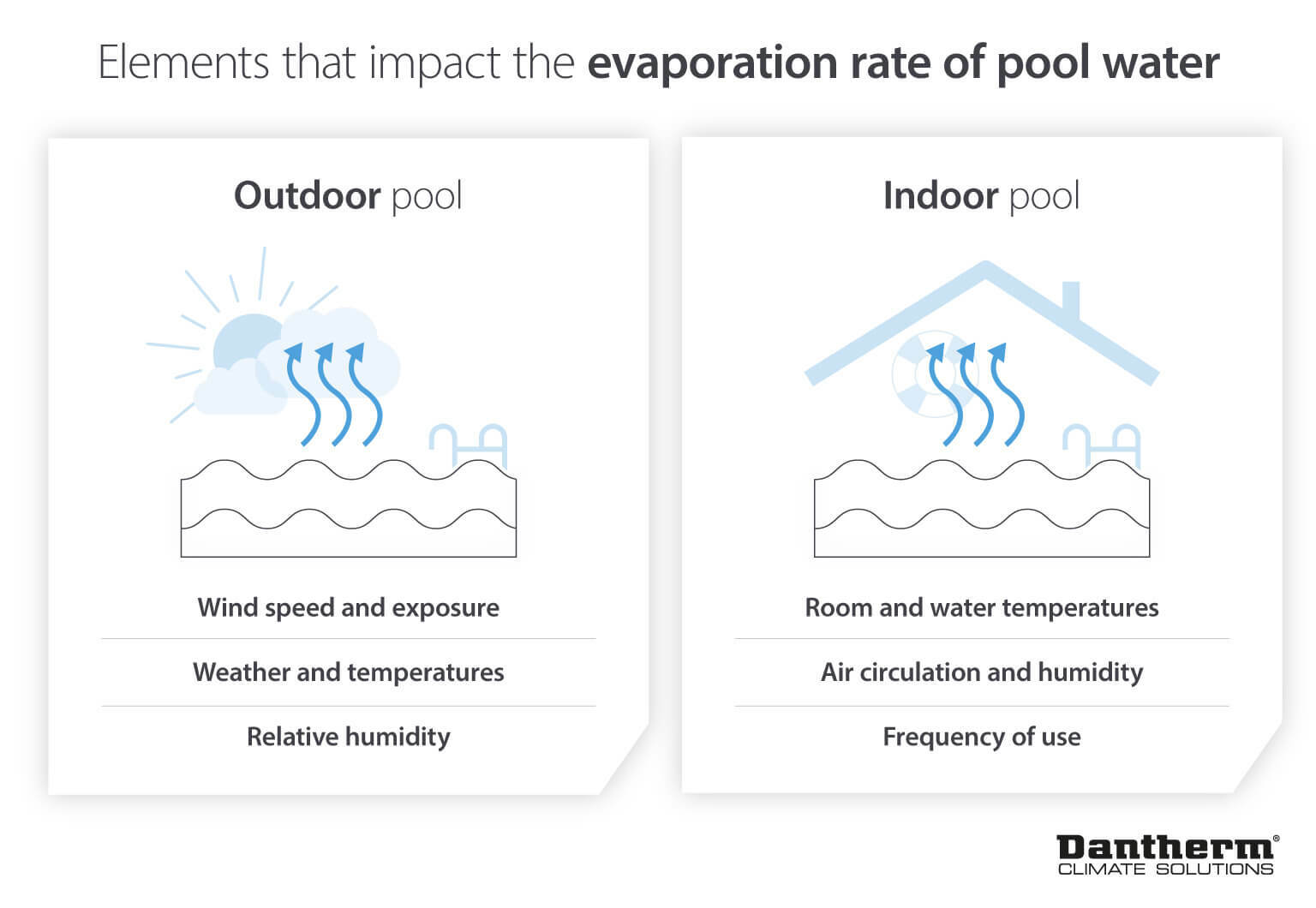
What size is your pool?
Beyond the nature of the facility’s shelter, the volume of water will influence the power required to heat it. Naturally, the more water there is, the more energy and time will be needed to reach and sustain the target temperature.
As well as that, the size of the pool itself can influence the rate at which warmth evaporates. Simply put, the larger the surface area, the faster the potential heat loss.
How do you plan on using your pool?
The intended use of the pool may also have an effect on the cost to heat it. If the facility was supposed to be more akin to a spa, for example, then the water would need to stay warmer than that of a standard swimming pool, requiring more energy
Water temperature isn’t the only bearing on the energy required. the cost to deliver the ideal amounts of heat may also be influenced by:
When you intend to use the pool throughout the year
How often you plan on using the facility every day
The average number of occupants
For instance, if you intend to have your pool available for the majority of the year, rather than simply the summer, access to a swimming pool heat pump capable of running in colder temperatures will be important.
What type of pool heater do you have?
As well as the size, scale and location of your facility, the heating solution you choose will also have a considerable impact on the energy required to maintain optimal conditions.
Each solution has a different coefficient of performance (CoP) that measures how energy efficient a specific solution is. To illustrate this metric as an example, a pool heater with a CoP of 1 will generate 1kW of heat energy for every 1kW of energy it uses.
Gas heaters
By burning gas in a combustion chamber, heat exchangers transfer heat to the pool water. Aside from having an impact on the environment, these heaters offer an average CoP of between 0.8 and 0.85.
Oil heaters
Oil heaters operate almost identically to gas heaters, however, the fuel used in the combustion process is different. This technology also often generates a CoP of between 0.7 and 0.75, and presents the same environmental issues.
Electric heaters
Instead of using combustible fuel as a source of energy, electric pool heaters utilise electricity to heat coils and warm pool water. Despite being greener than burning fossil fuels, these heaters often have a CoP of close to 1.
Solar power
By capturing the rays of the sun, solar panels can generate renewable energy independent of an electrical grid to heat the pool water. While this energy is free and clean, solar technology relies entirely on the weather and investing in solar panel technology, which can make it a substantial investment.
Swimming pool heat pumps
By exploiting the energy of the outside air in an evaporator, a swimming pool heat pump generates heat that is then transferred via a condenser into the pool water. This can generate a CoP of between 5 and 10. This means that for every 1kW of electrical energy put in, these heat pumps can deliver anywhere between 5kW and 10kW of efficient heat energy.
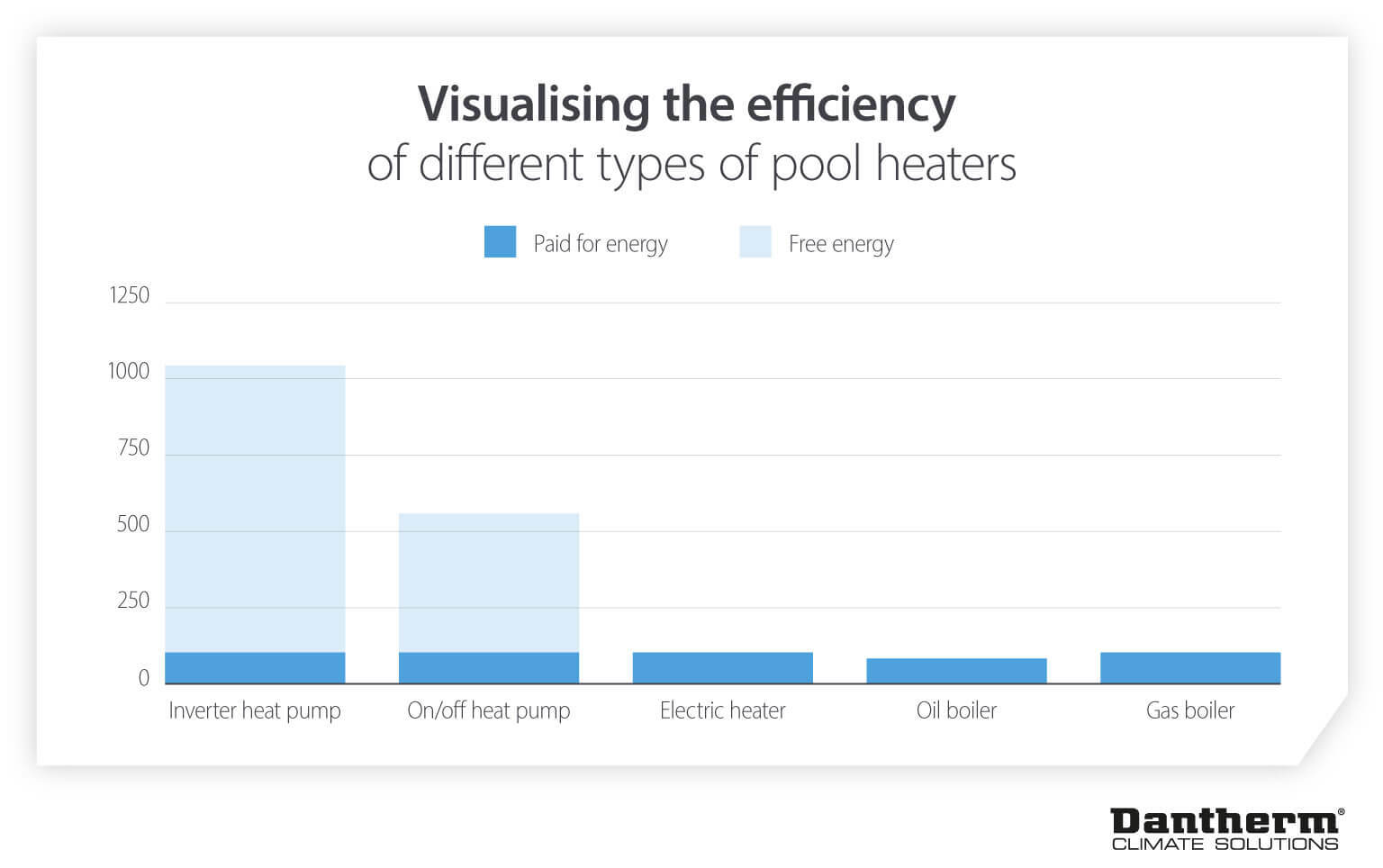
Further swimming pool heating considerations
Beyond the factors previously discussed, swimming pool water heating can also be impacted by a number of other elements, both inside the pool and out. Some of these considerations include:
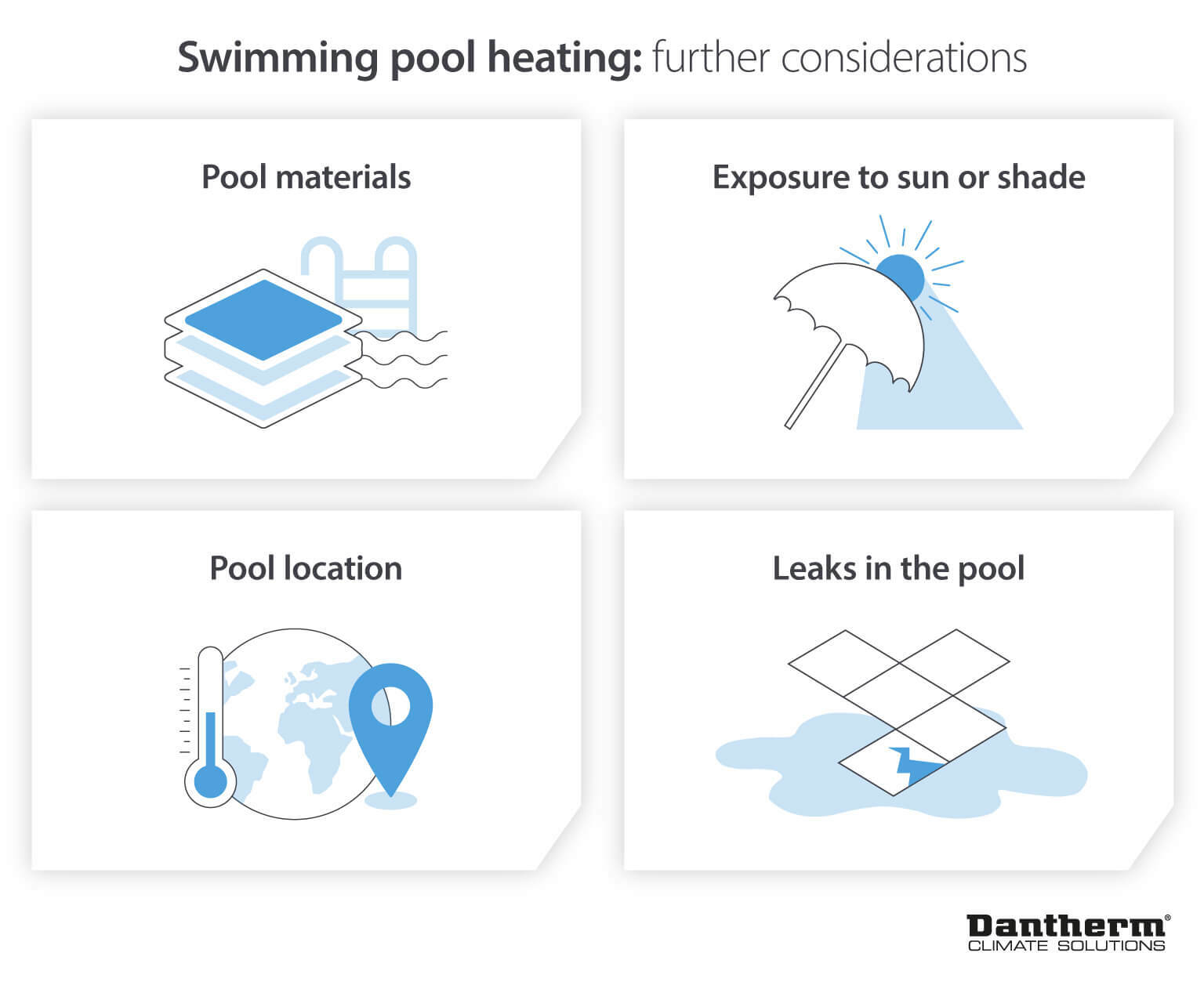
In order to get a precise figure for the cost of heating your pool, speak to the experts at Dantherm by getting in touch online, or by filling out the contact form below
What type of pool heater is ideal?
While there are several types of solutions on the market, swimming pool heat pumps offer the best blend of energy efficiency, practicality and power. As a result, this technology is the ideal choice to keep running costs to a minimum.
While power usage is an important concern, the last thing you want is to be restricted from using your pool because your heater is unable to operate in certain conditions. In this respect, heat pumps also prove themselves as the optimal solution, requiring only electricity and air to operate.
Furthermore, in comparison to gas or oil-based heaters, heat pumps are more efficient and generate fewer emissions, making this technology better for the environment.
Aside from the advantages discussed above, Dantherm favours swimming pool heat pump technology because they:
Require no fuel storage tanks or high-capacity power supply
Operate year-round in a wide variety of conditions and countries
Can pair with other solutions, such as solar panels
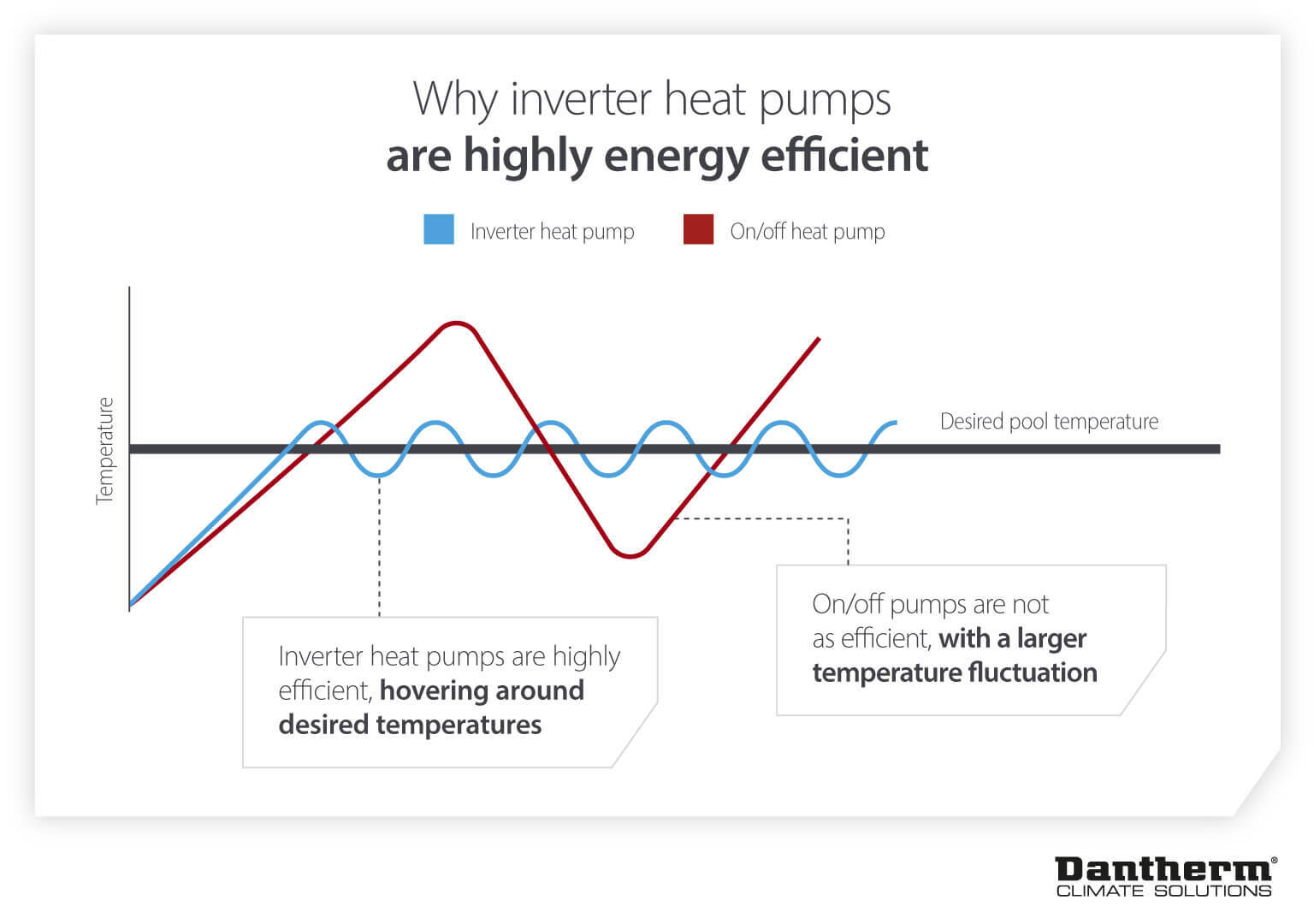
Which swimming pool heat pump is ideal?
While a swimming pool heat pump is the ideal type of solution to tackle sky-high pool bills, not every pump is built equally. To harness the full spectrum of advantages this technology can provide, choose a product from a brand you can trust.
Dantherm is a leading name in pool climate control. With over 60 years of experience, our knowledge continues to guide the installation and design of cutting-edge technology that places reliability, sustainability, efficiency and usability at the heart of our solutions.
Our range of heat pumps harness inverter technology. This means that rather than being simply on or off, the pump will run at maximum capacity to heat the pool, then slow down to its optimal control point – when the exact amount of heat it provides offsets the amount lost through evaporation.
This unlocks potentially huge energy savings while the pump is running slower, as well as reduced noise, while maintaining a consistent, comfortable temperature for all users.
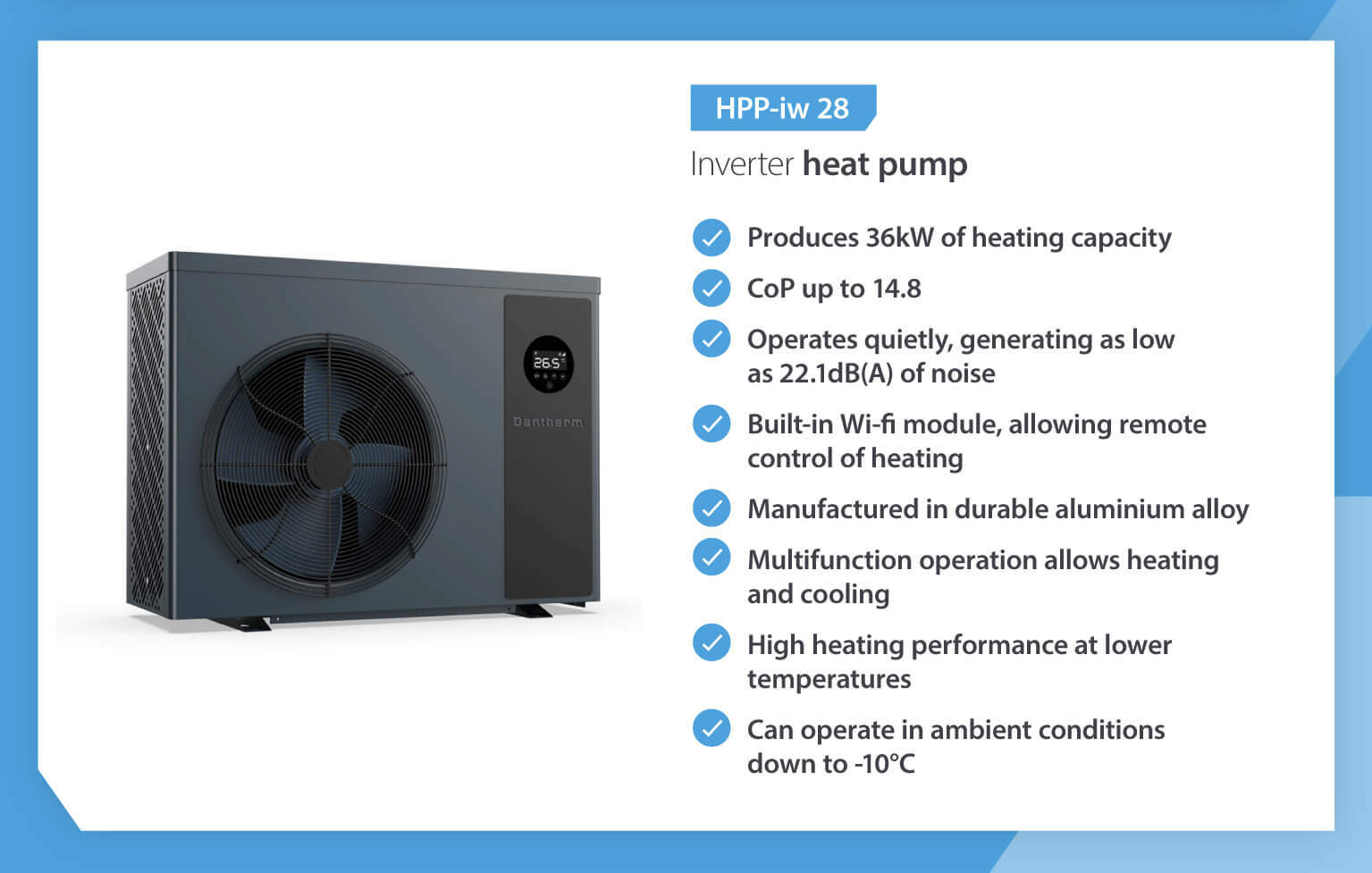
Talk to the experts
If you are looking for a cost-effective and eco-friendly solution to keep your pool temperature at the optimal level indoors or out, choosing the right type of heater is only the beginning.
View our range of large pool heat pumps and small pool heat pumps suitable for all domestic and commercial purposes on any scale.
To select the right solution for your needs, and operate your selected heater as effectively as possible, get in touch with the experts at Dantherm or fill out the contact form below.
Related products
Featured insights
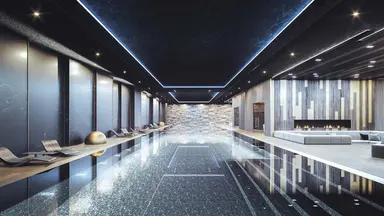
Meet the latest addition to Dantherm’s market-leading range of swimming pool air handling units.
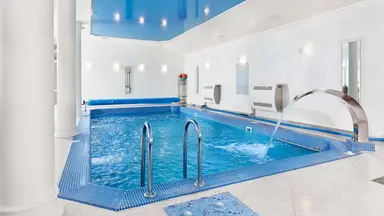
Gain valuable insight into what you need to select the right size dehumidifier for your pool.
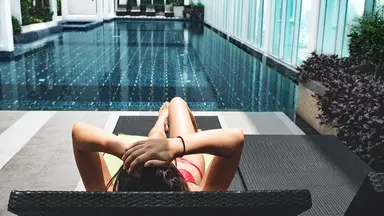
Finding the ideal balance of air quality, climate control and cost-saving
Need help with choosing the right solution? Our team of over 100 climate control experts can assist.
You can also reach out or join the discussion on our Social Media. Check out our LinkedIn page.
